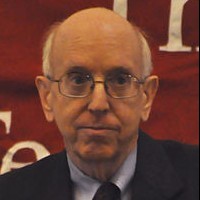Posner opinion tosses death sentence for man forced to wear stun belt during penalty hearing

Judge Richard Posner
An Indiana man sentenced to death for a triple murder was prejudiced by his lawyer’s failure to object to a stun gun belt he wore under his shirt, the Chicago-based 7th U.S. Circuit Court of Appeals has ruled in an opinion by Judge Richard Posner.
The Aug. 4 opinion overturned the death sentence but upheld the conviction for John Stephenson, who was convicted in the 1996 shotgun and stabbing murders of three people riding in a truck, report Reuters and the Indiana Lawyer.
Stephenson had no history of acting up in the courtroom and there was no reason for his lawyer to think Stephenson would “go berserk,” yet the lawyer failed to object, Posner wrote in the opinion.
Stephenson had to wear the belt under his shirt during his entire trial, but he was prejudiced only during the penalty phase, the appeals court said. The guilt phase of trial lasted almost eight months compared to the penalty phase, which lasted one day.
The belt was visible as a bulge and four jurors were aware Stephenson was wearing it. The government had argued there was no prejudice because the most important factor in sentencing was the crime itself—a triple murder for which Stephenson had been found guilty.
Weighing against that argument, Posner wrote, was “the brevity of the penalty phase, which gave salience to the stun gun’s potential negative effect on the jury’s assessment of Stephenson’s character.”
“Seeing the bulge and recognizing it as the action part of a stun belt the jurors may have thought it evidence that Stephenson was violent and unpredictable—evidence confirming the jury’s decision to convict and encouraging it to sentence such a person, already found to be a murderer, to death,” Posner wrote. “It’s also possible that wearing the stun belt affected Stephenson’s demeanor and appearance throughout the trial—made him nervous and fearful, which jurors might interpret incorrectly as signs of guilt.”
Posner’s opinion also cited testimony by a late-appearing witness who suggested another man had committed the murders, but said it wasn’t enough to establish Stephenson’s innocence.
Hat tip to How Appealing.



